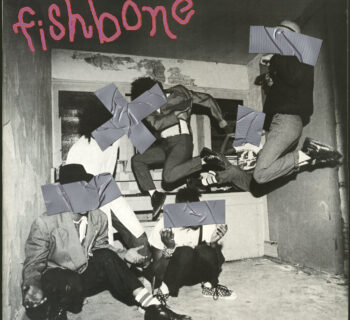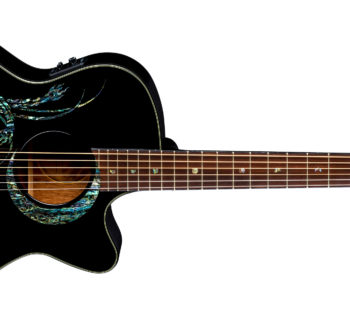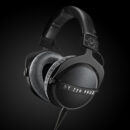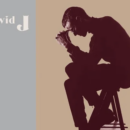We’re all familiar with the standard rules given to those who think they want the fame, glory and money that comes from being a successful singer-songwriter––work hard, practice, smile, be nice to people, etc. In the 40 years or so that music industry veteran Larry Butler has worked with some of the most successful artists in the business, he says he’s found a number of pieces of advice that you’re probably not going to find in those well-worn lists. Here are five taken from his new book The Singer-Songwriter Boot Camp Rule Book: 101 Ways To Improve Your Chances Of Success. None of them involve smiling.
1. Be a solo artist or a duo, at most. There’s way less overhead and you never have to attend any band meetings.
In addition to being less expensive to mount a career (vis-à-vis a band), at every step along your uphill career path you are going to have to know how to perform and entertain in some kind of solo, acoustic, stripped-down, bare bones situation and sometimes at the drop of a hat.
For instance, to get the attention of radio programmers, music supervisors and ad agencies you’re going to have to set up in a solo acoustic setting and perform in office break rooms and convention/seminar showcases. Your goal is to be better than the singer-songwriter who was performing in their conference room the day before. Is your show way more entertaining? It had better be or you lose out. And you can’t be just good or even very good––you have to be GREAT!
2. Get your own vocal mic. God knows where the club’s mic has been. And stop hiding your mouth behind your mic. Stop it!
Most clubs and sound companies use Shure SM58’s for vocals––they’re the standard of the industry. The trouble is that to get the SM58 to sound good you have to sing directly into it and hold it as close as you can to your mouth. But then your mouth is hidden, isn’t it? And your mouth is one of the three ways of communicating with your audience (the other two being your eyes and your hands).
You can change that! Modern audio science has developed a microphone design that allows the singer to sing above and across the top of the mic by holding it at a 45-degree angle at the chin while preventing feedback and other noises from the stage. In fact, it doesn’t work that well when the singer attempts to eat the mic!
It’s called a hyper-cardioid dynamic mic and it comes in many styles, sizes and price ranges. I prefer the Telefunken M80 for high pitch voices or M81 for lower pitch. Try them both and see which one you prefer. Sound techs don’t care if you want to use your own mic at a show; in fact, it’s usually a sign of a professional, and they welcome that any night.
3. Develop a stage personality with an attitude and a different way of looking at things. Show it off in your between-song patter.
Presenting your musical work in an entertaining manner is the presentation of personality. First, you need to have one––a personality, that is. And the best place to present that personality is in your essential between-song patter. Heretofore, you’ve probably not rehearsed anything to say from the stage and decided to “wing it.” If you’re going to do that, why even bother to rehearse your songs? Why not “wing” those too? Exactly.
I believe that the between-song patter is at least as important as your songs (and perhaps even more entertaining) and needs to be presented with the same amount of thought, preparation and rehearsal as your songs. Entertaining patter leads the audience to a better understanding and appreciation of your song and of you.
The idea here is to not only shed some light on the songs, but also how you FEEL about the songs, and the world, and relationships, and music, and whatever. You need to generate a reaction from the audience and not be afraid to step on a few toes. You need to present a relevant, consistent and personable attitude.
4. Lose any appearance of pride on stage, even to the point of looking foolish. Be vulnerable. People love that.
I don’t mean like the pride you take in your musical skills or professional standards. I’m talking about the pride that everyone hides deep in their ego that prevents them from making fools of themselves in front of other people. But there’s nothing wrong with looking foolish on stage––as long as it’s scripted and rehearsed and delivered with a wink. That’s entertaining!
The thing you have to get over is your reticence to doing something foolish on stage. Show your vulnerability by letting that foolish pride go––all successful entertainers have done so. Being vulnerable on stage is the best way to emotionally connect with an audience. If you can’t (or won’t) do that, then you are doomed to keep performing at the level you are now.
5. Studies show that creative artists have more emotional problems than the average person. Solution? Seek and accept help.
Creative artists’ lives are, more often than not, ruled by their emotions, which take undue precedence over rationale, reason and reality.
Drugs and alcohol are thought to be the shortcuts to creativity. But they’re also the express lanes to dysfunction. And don’t think you’re immune––you’re not. It’s not about will power or common sense, even if you had either one to begin with.
And addiction goes beyond the poster children of alcohol and drugs. There’s nicotine, caffeine, antibiotics and Afrin, for instance. They’re all good in moderation, but moderation is not a common attribute of singer-songwriters and artists.
There are solutions and there is help. Search out someone who has suffered through many of the same problems as yours and could offer some suggestions. And when help is offered, accept it. It’s the only way out.
LARRY BUTLER is a 40-year veteran of the music business. He currently consults as a live performance music coach based in Los Angeles. His new book, The Singer/Songwriter Boot Camp Rule Book: 101 Ways To Improve Your Chances Of Success, is available at Amazon in both digital and print configurations (amzn.to/2o4osB8). Butler also runs one of 365 insightful quotes from famous rock and pop stars every day on his Twitter feed: @larryfromohio. He can be reached through his website, diditmusic.com.













